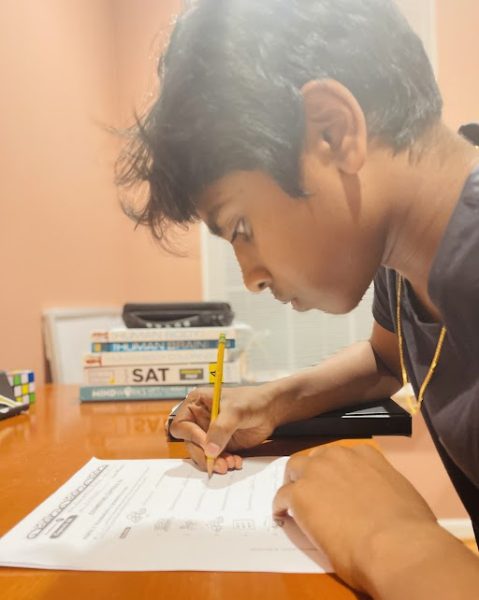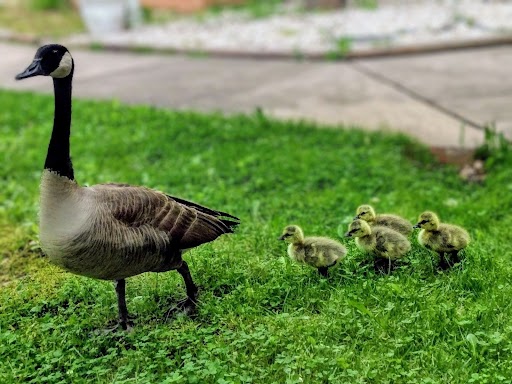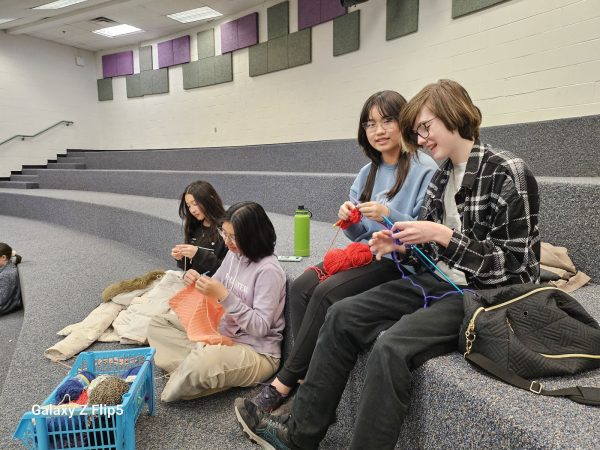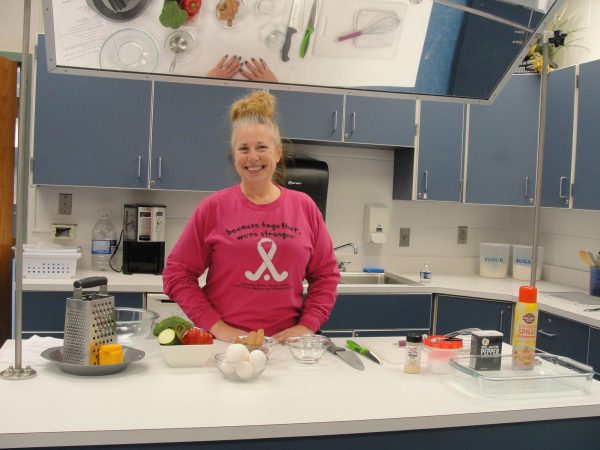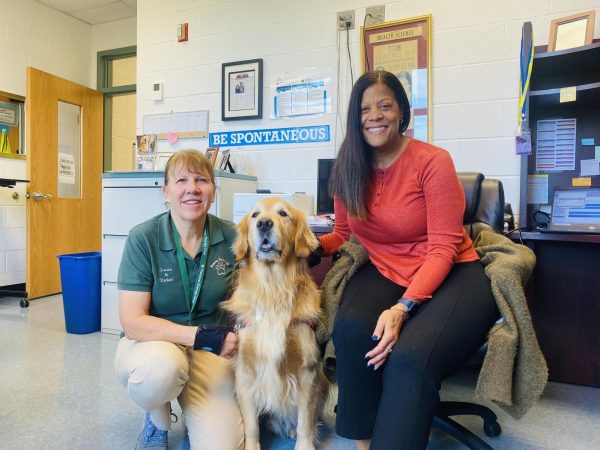Young teenagers tell their social truth
Alicia Zheng, seventh-grader on the Dream Team, giving Myra Goyal, seventh-grader on the Champions Team, advice about how to be more social with peers.
From the time you start pre-school to when you graduate elementary school, for the most part, making friends was a breeze. It was easy back then, it was natural not having a care in the world about what people thought nor what they said. But we’re in middle school now and all of that changed sooner than we expected.
When middle school starts, most young teenagers tend to be more involved in their social life rather than their education, which they abandon. Most students of RCMS agree that education is the priority whereas others feel they are equal.
Katherine Biedell, an eighth-grader on the Explorers team, feels that education is the main priority to an extent.
“Academics are more important than friends unless those friends are like family.”
Maisie McArter, an eighth-grader on the Dolphins team feels differently.
“I think they are equal,” she said. “Education is important, but I’d rather have a really good group of friends than have an A+ on a test.”
Though education is arguably the priority, social life is just as important. Studies show that with a social life young teens feel a sense of belonging.
A social life is important for every teenager and young teenager. Most students agree with this statement but they have their definitions of the importance. Patrick Hardenburgh, seventh-grader on the Trail Blazers team agrees.
“It’s important to have friends,” Patrick said. “It’s good to have friends to relate to if you need help. It’s good to not always be alone.”
It is known that having a social life gives you someone to relate to and grow with.
Mrs. Melissa Peeples, Rachel Carson’s School psychologist says, “Talking issues out with friends as opposed to the parents and adults in their life who may not understand complexities of being a teenager they don’t remember.”
Building friendships has its benefits and disadvantages in more ways than one. When starting middle school making friends is known to be difficult, especially for new students at a school.
Studies show that building friendships is very important for young teenagers to feel a sense of value by people other than their family.
Students agree the common difficulties in building friendships are finding your place, and where you fit in.
It is known that building friendships means finding your place. But how do you do that?
Katherine states, “Try to bond with people through after-school clubs, sports, and service hours.”
Using school resources and activities is a great way to build friendships. When doing this you find people you can bond with who have similar interests as you.
Having a social life has many benefits as well as disadvantages.
Though a social life is a serious advantage in a young teenager’s life, students agree that taking it too seriously can lead to problems that should be avoided.
Abigail said, “Probably too serious. I treat it like a challenge to get to know people even if I don’t feel comfortable.”
Students feel taking a social life too seriously can lead to stress no young teenager has time to bear.
For young teenagers, social life is known to be stressful, causing some problems with their mental health.
Students feel it is very important to take time for themselves to collect their thoughts. Maisie advises you to have self care time.
“Take a chill pill one day, it’s ok to be alone but it’s different from being lonely,” she said. “Make sure you’re with people that support you.”
Taking time to yourself is beneficial to an extent. Do students wonder what they should do if self-care isn’t working?
Mr. Kenneth Kim, school counselor for the seventh-grade Champions and Trailblazers team and the eighth-grade Dolphin’s team, says, “Students can talk to a teacher, a school counselor, or a coach. Whoever is a trusted adult.”
Talking to a professional or trusted adult about your mental health can be helpful. But you have to be up for it or it isn’t going to be any help.
Patrick Hardenbergh, a seventh-grader on the Trailblazer’s team states, “If you’re up to therapy it does work,” said Patrick. “I felt like I didn’t need it but if I were listening and more talkative it probably would’ve worked better.”
Today’s society regulates young teenagers over their social life. You’re either a “Loner” or “Popular.” And here is what students feel they are if put in a category.
Katherine feels she is fairly known.
“Popular not in a sense that everyone likes me. I can have a bond even if I don’t socialize often I enjoy knowing a variety of people who come from different backgrounds.”
Abigail feels differently.
“I’m really quiet around certain people, and around others, I’m like the loud person so maybe I’m more of a loner by myself.”
Young teenagers of RCMS were how they felt about being a loner or popular. Kayce Webb, a seventh-grader on the All-Stars team says, “It gets overwhelming considering everyone else’s opinion.”
Students feel these categories have been a problem even before middle school, and young teenagers have been and sadly still get picked on or even bullied for it.
Studies show young teenagers who are bullied can experience negative physical, social, emotional, academic, and mental health issues.
“Not really bullied, I had someone pick on me but everybody has,” Maisie stated. “I know I have people in my life who wanna be with me, they are both family and close friends.”
Young teenagers having a hard time building and balancing a healthy social life tend to ask for advice from trusted adults. But sometimes adults can’t put themselves in a pair of shoes they can’t fit, because they’ve grown out of it. So at times talking to peers can be better.
Students and staff were asked, “Is there any other advice you would like to give young teenagers struggling with their social life?”
Mr. Kim encourages students to be mindful of who they hang out with.
“We want you to have one but we want you to responsibly have one. Who you surround yourself with is who you become, choose your inner circle very carefully, you are responsible for how you act.”
Haylei Martin seventh-grader on the Champions Team. In her spare time she loves to draw and read.

